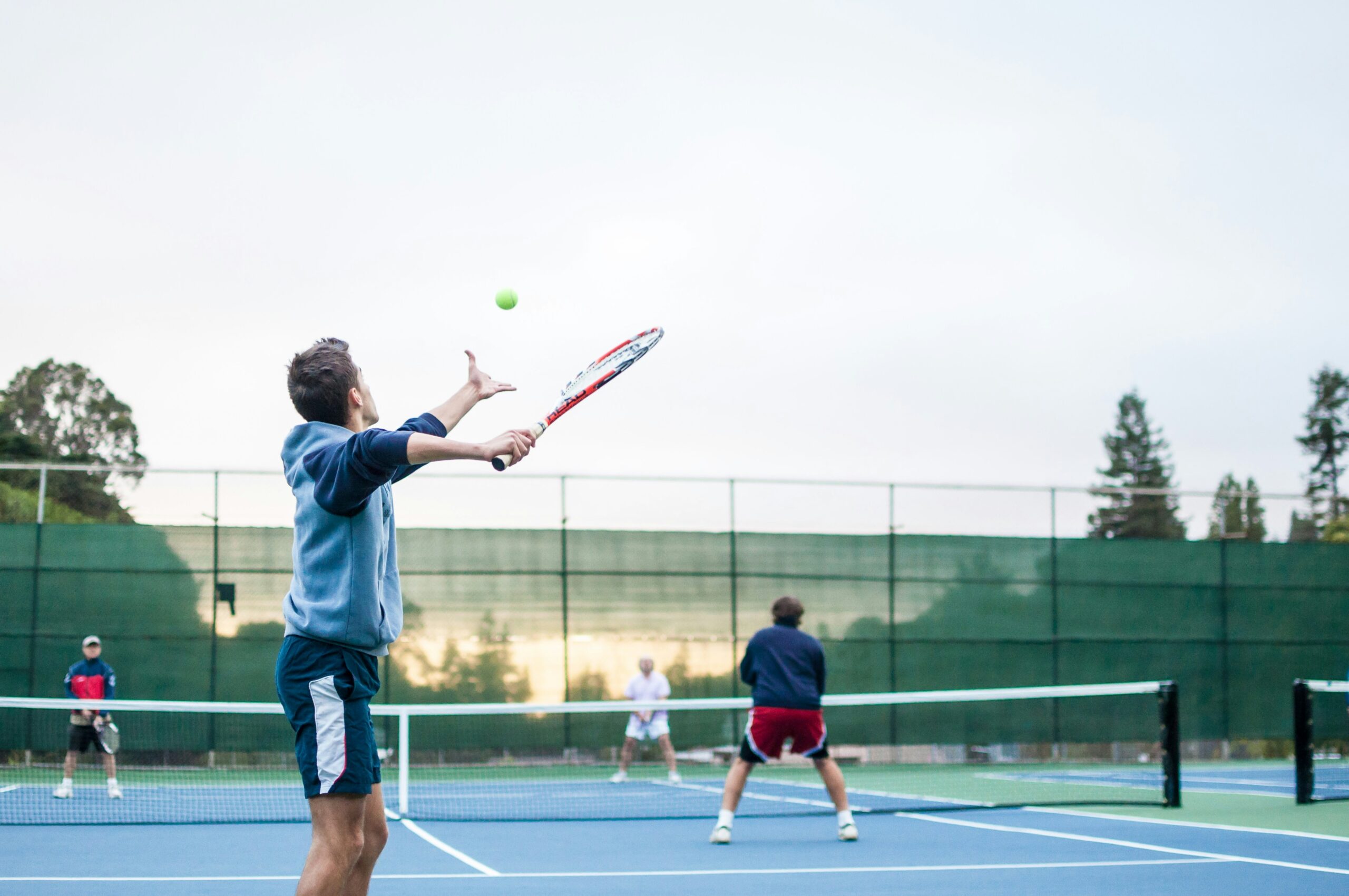
Tennis is widely regarded as one of the most physically demanding sports in the world. Players must be fast, powerful, and agile while executing precise movements under immense pressure. While the physical aspect of tennis is undoubtedly essential, many top tennis players attribute their success to the mental training they undergo off the court. Mental resilience has become a defining characteristic of champions, shaping their ability to perform under pressure and focus during grueling matches. This article explores how elite tennis players go beyond physical training to enhance their mental game, building the mental edge that often makes the difference between winning and losing.
Psychological Resilience and Mental Toughness
One key component of mental training for top tennis players is the development of psychological resilience. Tennis is a sport where a player’s mindset can dramatically impact their performance, especially during crucial moments like tie-breaks or when facing a match point. During these high-stakes situations, it is not uncommon for players to face intense emotional pressure, which can lead to mistakes if not appropriately managed. To combat this, professional players work extensively on staying calm, composed, and focused under stress.
Many players use techniques like visualization and meditation to develop resilience. For example, they may mentally rehearse specific match scenarios where they visualize themselves responding effectively to stressful situations. This practice helps reduce anxiety and strengthens the player’s mental fortitude when it matters most. As a result, when they are on the court, they are more equipped to handle adversity and perform at their best despite the mounting pressure.
Mindfulness and Focus Training
Focus is another critical element that separates the best players from the rest. In a fast-paced game like tennis, a single lapse in concentration can cost a player the entire match. Therefore, top players incorporate mindfulness exercises into their training regimens to improve their concentration during high-pressure moments. Mindfulness techniques allow players to stay present, blocking out distractions and negative thoughts that might arise during a match.
Incorporating mindfulness into training often involves breathing exercises, meditation, and body awareness practices that train the brain to focus on the present moment. By practicing mindfulness regularly, players can learn to avoid the common mental traps of overthinking and self-doubt, which can undermine their performance. Additionally, these exercises help players recover quickly from mistakes and maintain an unwavering focus on the next point, vital for success in a game that can change rapidly.
The Role of Mental Coaches
While many athletes rely on traditional coaching methods to improve their game, tennis players often work with mental coaches to further develop their mental edge. These professionals teach players techniques to enhance their psychological well-being and mental resilience. Mental coaches typically guide players through personalized exercises, such as stress management techniques and mental imagery, that complement their physical training.
Working with a mental coach can also help players overcome specific challenges, such as dealing with performance anxiety or recovering from a mental block. For instance, a player struggling with the pressure of competing at a high level might work on building self-confidence through positive affirmations or developing a pre-match routine that calms their nerves. By honing these mental strategies, players can approach their matches with greater confidence and a clearer mindset.
Routine and Consistency in Mental Training
Similar to physical training, mental preparation in tennis requires routine and consistency. Top players practice mental training daily, incorporating it into their regular schedules and physical workouts. For example, players might start their day with deep breathing or visualization before moving on to on-court practice. Integrating mental exercises with physical drills ensures that players constantly sharpen their psychological skills, even when not actively competing.
Consistency in mental training also helps players stay grounded and focused, even when facing the challenges of a long tournament or a difficult season. Mental resilience does not happen overnight; it requires consistent effort and a commitment to improving one’s mental game. By treating mental training with the same importance as physical conditioning, tennis players can build the mental toughness required to stay at the top of their game.
Building Confidence Through Self-Talk
Self-talk plays a crucial role in the mental preparation of top tennis players. How players speak to themselves can significantly influence their mood, confidence, and performance on the court. Negative self-talk, such as “I can’t do this” or “I’m not good enough,” can quickly erode a player’s mental state, leading to self-doubt and a lack of motivation. On the other hand, positive self-talk can boost a player’s confidence and help them stay motivated throughout a match.
Many professional players work on building constructive self-talk patterns, replacing negative thoughts with affirmations that reinforce their strengths. For example, they might remind themselves of their past successes, tell themselves to stay focused, or affirm that they are prepared for any challenge that comes their way. This type of positive reinforcement can effectively overcome the mental obstacles many players face during challenging moments on the court. By cultivating a positive internal dialogue, players can maintain a confident mindset, even when the stakes are high.
The Influence of Nutrition and Rest on Mental Performance
Mental performance is deeply intertwined with physical well-being; nutrition and rest are essential components of a player’s overall mental edge. Proper nutrition fuels the body and brain, ensuring a player has the energy and focus required for physical and mental tasks. Likewise, adequate rest and recovery are necessary to maintain cognitive function and emotional stability during a tournament.
Top players understand that their mental performance is directly impacted by their physical state, so they prioritize balanced diets and sufficient sleep during training. Nutritionists and physiologists often work with players to develop individualized plans that optimize energy levels and cognitive function, ensuring their mental sharpness remains high throughout matches. This holistic approach to training reflects the importance of treating the mind and body as interconnected elements that must work together for maximum performance.